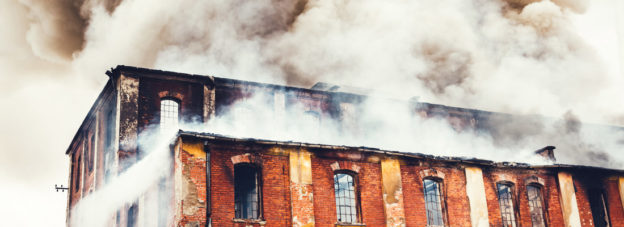In Safeco Insurance Company of Indiana as Subrogee of Ramona Smith v. Blue Sky Innovation Group, Inc., et al, No. 22A-CT-1924, 2023 Ind. App. LEXIS 157, the Court of Appeals of Indiana (Appellate Court) reversed a trial court ruling that granted the motion to dismiss filed by Michaelis Corporation (Michaelis), a restoration company. The Appellate Court ruled that the trial court erred in dismissing the plaintiff’s spoliation and negligence claims against Michaelis, who discarded evidence relating to the cause of the fire at issue.
The plaintiff’s insured owned a home in Indianapolis, Indiana. On Halloween night in 2019, a fire occurred at the property. The plaintiff’s representatives preliminarily determined that the fire may have been caused by a digital dehydrator within the kitchen. Michaelis had a representative present at the site inspection and was allegedly told to preserve the kitchen area. That area was taped off with “caution” tape. Michaelis also placed a tarp over the kitchen to prevent weather damage. Despite the instructions and precautions, Michaelis demolished the kitchen and discarded the dehydrator along with other fire debris.
The plaintiff paid its insured $510,861.46 relating to the fire damage. To recover its insurance payments, the plaintiff filed suit alleging negligence and strict products liability against the dehydrator manufacturer and the seller defendants. The plaintiff also asserted a third-party spoliation and negligence claim against Michaelis. The plaintiff’s spoliation claim alleged that Michaelis was hired to restore the property, was made aware of the need to preserve the evidence and breached its duty to preserve the evidence when it discarded the fire debris.
Michaelis filed a motion to dismiss alleging that the plaintiff failed to state a claim upon which relief could be granted. Michaelis argued that third-party spoliation claims, as an independent tort, are only available “in narrow and limited circumstances” which were not alleged by the plaintiff. The trial court granted Michaelis’s motion and stated: “Under prevailing Indiana case law, third-party claims for spoliation of evidence have only been recognized in limited circumstances. No such circumstances have been pled by Safeco.” The court also dismissed the negligence claim against Michaelis.
On appeal, the Appellate Court reversed the trial court. The Appellate Court reviewed the elements that must be plead in a third-party spoliation claim: duty, breach, and harm. The Appellate Court reasoned that a third party can only be found liable for the destruction of evidence when the third party owed a duty to preserve the evidence. The analysis of the duty question includes reviewing the relationship between the parties, the reasonable foreseeability of the type of harm to the type of plaintiff at issue, and public policy considerations. The Appellate Court also emphasized that when a third party takes possession or control of the evidence, doing so leans in favor of finding that a duty is owed.
The plaintiff’s allegations included that Michaelis was informed of the need to preserve the evidence, took steps to preserve the evidence (by taping and placing a protective tarp around the area) and ultimately destroyed the evidence. These allegations were sufficient to support a claim of third-party spoliation. The Appellate Court also found the allegations within the plaintiff’s claim for negligence to be sufficient. While the plaintiff scored an early victory and is allowed to proceed with its third-party spoliation claim, it remains unclear whether it will ultimately collect against Michaelis.
Subrogating insurers conducting post-loss site investigations in Indiana may benefit from this ruling in the event evidence is destroyed. To benefit from the ruling, insurers must show that appropriate steps were taken to preserve the loss site—photographs of a secured site and written correspondence confirming the preservation will help. In addition, acknowledgement from all parties that the site will not be disturbed, nor evidence removed until all parties agree on an approach can save insurers from litigating evidentiary issues down the road.

